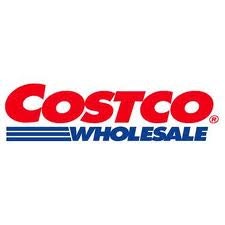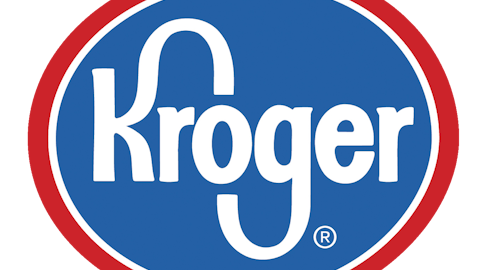Costco Wholesale Corporation (NASDAQ:COST) has proven a truly great business to own in the long run. In the past 10 years, its share price has increased by more than 194%, reaching $110 per share. Moreover, the company has paid consistently increasing dividends since 2004. If the dividend payments are taken into account, its total return has been much higher, at 248% in the past 10 years. Should investors consider Costco Wholesale Corporation (NASDAQ:COST) a good buy now? Let’s find out.

The most efficient operations with the highest profitability
Costco Wholesale Corporation (NASDAQ:COST) is considered one of the largest membership warehouse operators in the world, providing low-priced merchandise to its members. In order to reduce its operating costs, the company purchases most of its merchandise directly from manufacturers and routes it directly to its warehouses. The company reported that this process could save a lot of the costs of traditional distribution channels. In the past three years, the number of total cardholders has been increasing significantly, from 58,000 in 2010 to around 67,000. The business has quite loyal members, with a global renewal rate of 86.4% in 2012.
Because of its unique wholesale business model, it could generate high sales volume and quick inventory turnover. Costco Wholesale Corporation (NASDAQ:COST) says it normally sells inventory before paying its vendors. Consequently, its inventory could be financed through payment terms, rather than by working capital. Indeed, compared to Wal-Mart Stores, Inc. (NYSE:WMT) and Target Corporation (NYSE:TGT), Costco Wholesale Corporation (NASDAQ:COST) enjoyed the highest asset turnover. In the past 12 months, its asset turnover stayed at 3.83%, while the asset turnover rates of Wal-Mart Stores, Inc. (NYSE:WMT) and Target Corporation (NYSE:TGT) came in at 2.37% and 1.62%, respectively.)
Investors would be surprised by its low cash conversion cycle (CCC), which measures how quickly the operation can turn receivables and inventory into cash. The lower CCC, the better the operation is. Target has the highest CCC among the three, at 23.72 days. Wal-Mart’s CCC is better at 10 days. However, no large retail and wholesale business could beat Costco with only 3.3 days in CCC. In terms of profitability, Costco is also the most profitable company of the trio, with nearly 13.7% return on invested capital. Wal-Mart ranks second with 12.1%, while the return on invested capital of Target is the lowest, at only 6.3%.
Charlie Munger’s favorite business
Investors might do quite well in the long run by following Charlie Munger into Costco. Munger pointed out that it built its loyal customer base by selling quality merchandise at the price which was close to what it paid. He said: “If you get hooked on going to Costco with your family, you’ll go for the rest of your life.”
Costco seems to be more efficient than Wal-Mart with the highest sales per employee of the group. In 2012, Costco had around 174,000 employees. Thus, its sales per employee were around $593,000. Wal-Mart has a much higher number of employees of around 2.2 million globally. With nearly $470 billion in revenue in the past 12 months, Wal-Mart’s sales per employee were much smaller, at only around $213,000. Target has the lowest number of employees of only 361,000 in February 2013. Consequently, its sales per employee is a bit lower than Wal-Mart, at $202,600.
EV/EBITDA is an important concept of valuing businesses. It is Enterprise Value/Earnings Before Interest, Tax, Depreciation and Amortization. Enterprise Value is the market capitalization which is adjusted for debt and cash. Consequently, the EV/EBITDA ratio reflects the market value, the leverage level relative to the cash flow position of a company.
At $110 per share, Costco is worth around $47.90 billion. The market values Costco at 11.6 times EV/EBITDA. Costco has the highest valuation compared to Target and Wal-Mart. Wal-Mart is trading at around $74.80 per share, with the total market cap of $247 billion. The market values Wal-Mart at 8.1 times EV/EBITDA. Target has the cheapest valuation. At $69.50 per share, Target is worth $44.60 billion on the market. It is valued at only 7.46 times EV/EBITDA. Income investors might like Wal-Mart the best with its highest dividend yield at 2.5%, while the dividend yields of Target and Costco are lower, at 2.1% and 1.1%, respectively.
My Foolish take
Costco, even with the highest valuation, is still a great stock for investors in the long run. It might experience short-term set backs from time to time in the future but investors could do well by just sticking to it, as Warren Buffett said: “It’s far better to buy a wonderful company at a fair price than a fair company at a wonderful price.”
Anh HOANG has no position in any stocks mentioned. The Motley Fool recommends Costco Wholesale. The Motley Fool owns shares of Costco Wholesale.
The article A Wholesaler for Your Long-Term Portfolio originally appeared on Fool.com and is written by Anh HOANG.
Anh is a member of The Motley Fool Blog Network — entries represent the personal opinion of the blogger and are not formally edited.
Copyright © 1995 – 2013 The Motley Fool, LLC. All rights reserved. The Motley Fool has a disclosure policy.




